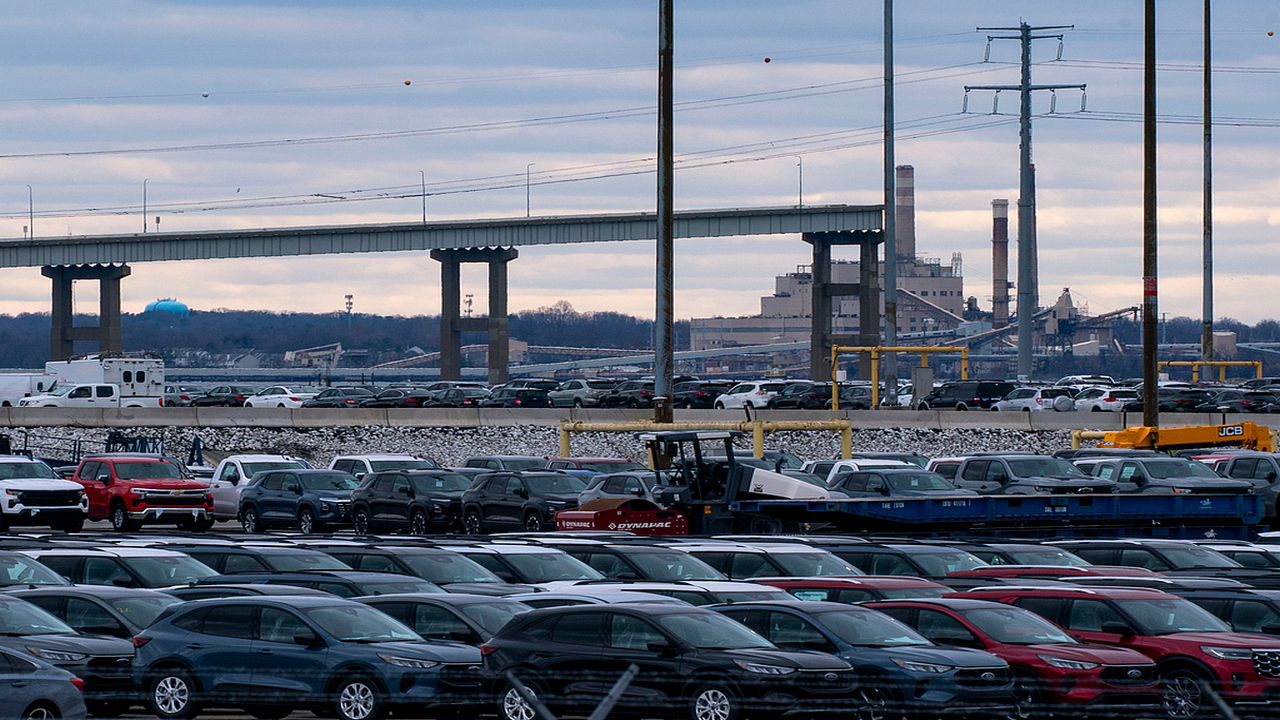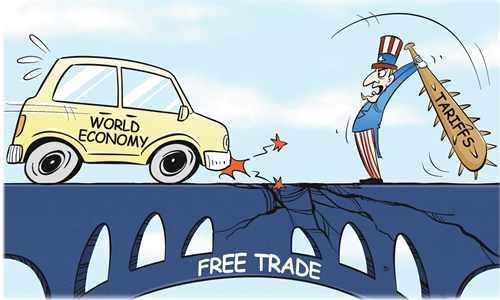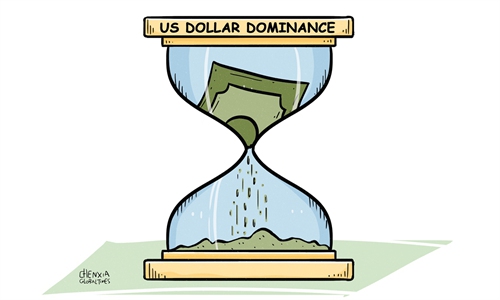US auto tariffs send ‘disastrous signal’ for free, rules-based trade: German industry leader

New vehicles are parked at the Port of Baltimore in Maryland, the US, on March 6, 2025. Photo: VCG
New US tariffs of 25 percent on all imported passenger cars and light commercial vehicles send a "disastrous signal" for free, rules-based trade, Hildegard Müller, president of the German Association of the Automotive Industry (VDA), told the Global Times on Thursday.
The US administration announced on Wednesday that it will impose 25 percent tariffs on all vehicles imported into the US, which will take effect on April 3. The announcement has drawn criticism from many economies, including China and the EU.
At a regular press briefing on Thursday, in response to a question about how the US announcement of a 25 percent tariff on all car imports will affect China-US cooperation, Chinese Foreign Ministry spokesperson Guo Jiakun said that the US' move violates WTO rules, undermines the rule-based multilateral trading system, harms the shared interests of people worldwide, and will not help the US solve its own problems.
The US tariffs will likely have a bigger impact on the EU compared with Chinese carmakers, as levies on Chinese autos have been increased up already, according to a Reuters' report on Thursday.
In a statement sent to the Global Times, Müller said that "the tariffs place a significant burden on both companies and the automotive industry's closely interwoven global supply chains - with negative consequences especially for consumers, also including those in North America."
The additional tariffs will also directly affect the US economy, and the consequences will be costs to growth and prosperity on all sides. "However, it is also a fact that additional tariffs will have a significant negative impact on exports from the EU to the US," Müller said.
According to the results of a recent VDA survey, 86 percent of mid-sized automotive companies expect that the US tariffs imposed against numerous states and regions will also affect them. "The risk of a global trade conflict - with negative effects on the global economy and growth, prosperity, jobs and consumer prices - is high on all sides," Müller said.
Leaders of major US trading partners have also criticized Washington's new auto tariffs.
Canadian Prime Minister Mark Carney called the US auto tariffs a "direct attack" on Canadian workers, Canadian media outlet CTV News reported. Noting that Canada has already imposed some retaliatory tariffs, Carney said "there'll be more," adding that there are additional options for retaliatory tariffs, according to the report.
European Commission President Ursula von der Leyen on Wednesday night expressed deep regret about the US latest tariffs. "Tariffs are taxes - bad for businesses, worse for consumers, in the US and the EU. The EU will continue to seek negotiated solutions, while safeguarding its economic interests," she wrote on X.
In Brazil, President Luiz Inacio Lula da Silva also said that "I am very concerned about the behavior of the American government," the Associated Press (AP) reported. "I am concerned because free trade is being harmed and I am concerned because multilateralism is weakened," Lula said through an interpreter, according to the AP.
The new tariffs will not benefit the US automotive industry; on the contrary, they could erode its competitive edge, as a competitive environment helps companies sustain research and development and innovation, Zhang Xiang, director of the Digital Automotive International Cooperation Research Center of the World Digital Economy Forum, told the Global Times on Thursday.
Additionally, such moves could trigger retaliatory tariffs from other countries, further increasing the cost of cars in the global market and disrupting supply chains, Zhang said.
In the US, some consumers and businesses also voiced growing concern over the impact of the tariffs.
"Placing tariffs on imports of autos risks damaging the competitiveness and export readiness of an industry that relies on integrated international supply chains and markets for its success," Tiffany Smith, vice president for global trade policy of the US National Foreign Trade Council, was quoted as saying in a statement on the group's website on Thursday.




